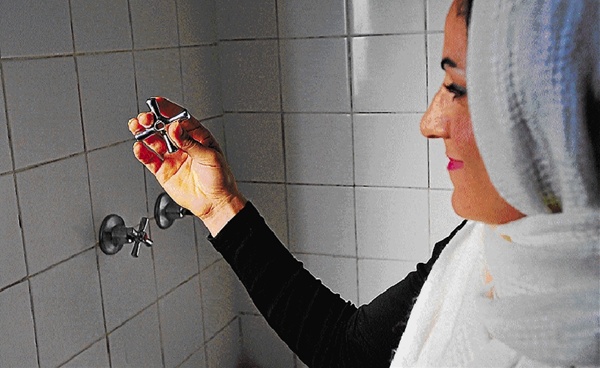THEIR first home in Australia was supposed to bring the start of a happy new life.
Instead, they were confronted with piles of rubbish in the backyard, a broken heater and a property generally unfit for a young family.
The woman, who wants to be known only as Rahil, is an Iranian Kurd who arrived in Australia in 2010.
in September that year, she and her husband and young daughter moved into a small house in Albion that they rented through a real estate agent who was acting on behalf of the landlord.
Persistent requests for repairs fell on deaf ears and they were too scared to rock the boat in case they were blacklisted with the agent. It wasn’t until February this year they finally sought the help of the Footscray Community Legal Centre (FCLC).
Rahil, through an interpreter, said they had complained four times in one month only to be fobbed off.
“We fear that if we have a bad [rental] history from complaining to the agent we can’t have a good property after that.”
According to the legal centre, the landlord is still dragging his feet on repairs and breached a duty to provide property in a reasonably clean condition.
Serving a breach-of-duty notice on the landlord has not fixed the problem.
This is not an isolated incident.
An FCLC investigation into disturbing client accounts of dodgy real estate agents and exploitive landlords found refugees in Melbourne’s west are being exploited and living in dingy conditions. It often leads to homelessness.
FCLC community solicitor and report author Laura Berta said real estate agents often ignored refugees’ requests for repairs and current laws allowed the agents to get away with it.
“We need to change the repair process so real estate agents take complaints seriously,” she said.
Refugees are further disadvantaged by language and cultural barriers, at times leading to unfair eviction or loss of bond money.
Refugees face unfair evictions and loss of bond money and struggle to represent themselves when an issue arises. Others struggle to argue their case during disputes at VCAT with limited access to interpreters and limited knowledge of the process.
Refugees also struggle to access affordable housing and as a result are at an increased risk of homelessness.
The FCLC also found problems with public housing, with the Department of Housing failing to maintain properties.
When problems arose, it was not acting as a “model litigant” by acting fairly and promptly, avoiding legal proceedings and resolving disputes with tenants by agreement, where possible.
Housing Minister Wendy Lovell’s spokeswoman, Alicia Byrne, said in a statement that the department responded to all requests for maintenance work on its properties in accordance with the Residential Tenancies Act.
Its staff were expected to act in accord with the Client Services Charter and adhere to existing policy guidelines that promoted settlement of disputes at the local level in a fair and equitable manner.
“Urgent repairs requests are completed within 24 hours, while non-urgent work is completed within two weeks. The recent Auditor-General’s report into public housing has found there was more than a decade of systemic neglect and mismanagement by the former Labor government, including a significant maintenance backlog.”
State government spokeswoman Emily Broadbent said the needs of Victoria’s most vulnerable groups were a matter of great concern and a range of measures to assist such groups were in place.
These included a Consumer Affairs Victoria (CAV) multi-lingual telephone information service which fielded more than 87,000 calls about renting and more than 10,000 calls about matters involving real estate agents in 2010-11.
“In 2010-11, CAV finalised 15 real estate prosecutions or civil actions, and also 491 disputes about estate agents.”







